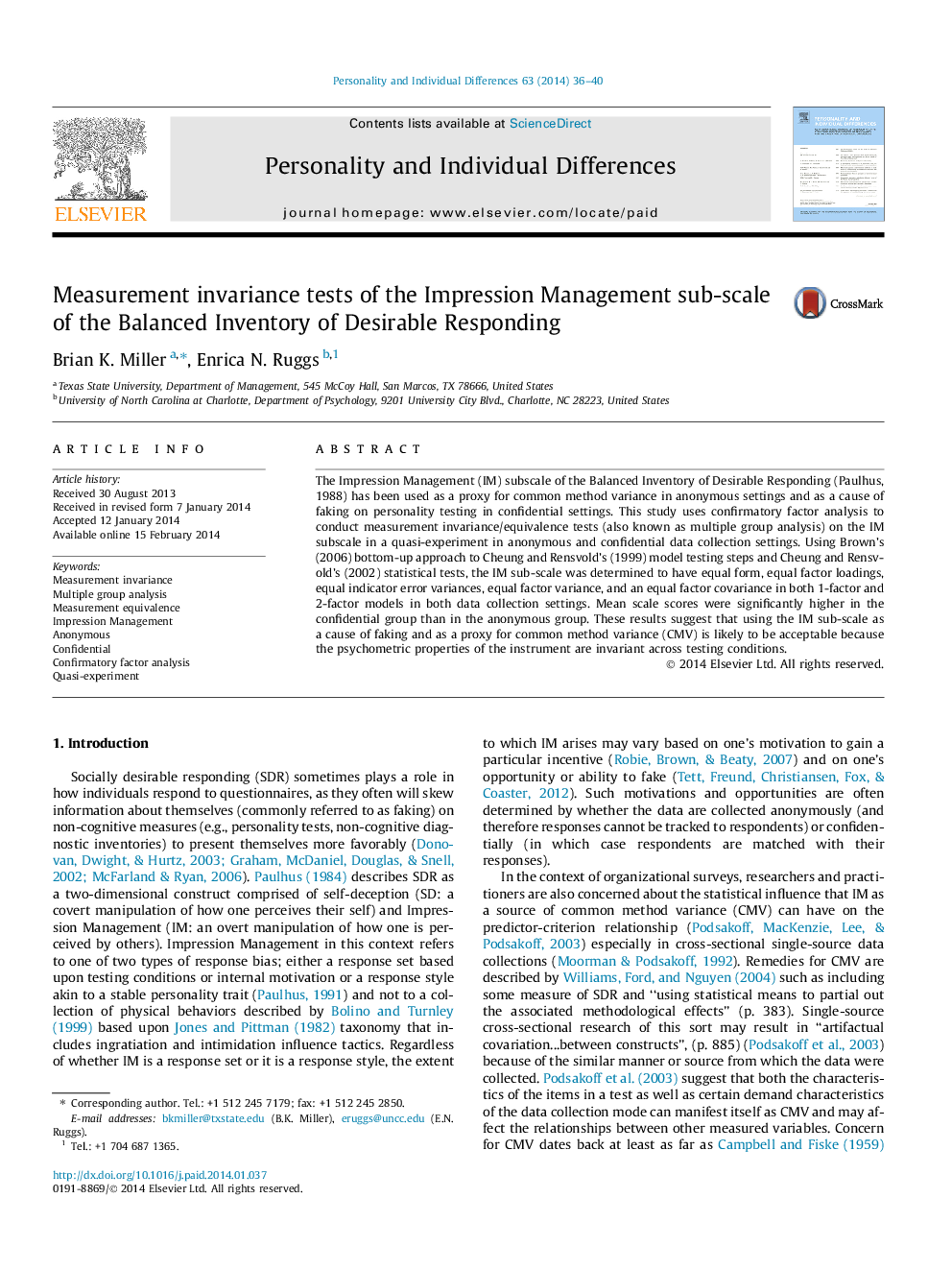| Article ID | Journal | Published Year | Pages | File Type |
|---|---|---|---|---|
| 7252353 | Personality and Individual Differences | 2014 | 5 Pages |
Abstract
The Impression Management (IM) subscale of the Balanced Inventory of Desirable Responding (Paulhus, 1988) has been used as a proxy for common method variance in anonymous settings and as a cause of faking on personality testing in confidential settings. This study uses confirmatory factor analysis to conduct measurement invariance/equivalence tests (also known as multiple group analysis) on the IM subscale in a quasi-experiment in anonymous and confidential data collection settings. Using Brown's (2006) bottom-up approach to Cheung and Rensvold's (1999) model testing steps and Cheung and Rensvold's (2002) statistical tests, the IM sub-scale was determined to have equal form, equal factor loadings, equal indicator error variances, equal factor variance, and an equal factor covariance in both 1-factor and 2-factor models in both data collection settings. Mean scale scores were significantly higher in the confidential group than in the anonymous group. These results suggest that using the IM sub-scale as a cause of faking and as a proxy for common method variance (CMV) is likely to be acceptable because the psychometric properties of the instrument are invariant across testing conditions.
Keywords
Related Topics
Life Sciences
Neuroscience
Behavioral Neuroscience
Authors
Brian K. Miller, Enrica N. Ruggs,
